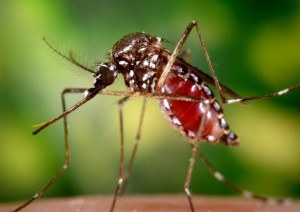After reported cases of chikungunya in New Caledonia and a large outbreak in Tonga this year, French Polynesian health authorities are reporting the first imported case of the mosquito borne virus in Tahiti.
A Radio New Zealand report states a 60-year-old woman was diagnosed with the virus after traveling to Guadeloupe in the Caribbean. Guadeloupe is one of the hardest hit Caribbean islands with chikungunya recording 18,000 suspected and 1,328 confirmed or probable cases, including one death as of last week.

In late 2013, Tahiti recorded an outbreak of another mosquito borne virus, Zika fever, which prompted the US Centers for Disease Control and Prevention (CDC) to issue a travel advisory for Tahiti.
According to a World Health Organization (WHO) Fact Sheet, Chikungunya is a viral disease that is spread by mosquitoes. It causes fever and severe joint pain.Other symptoms include muscle pain, headache, nausea, fatigue and rash.
The disease shares some clinical signs with dengue, and can be misdiagnosed in areas where dengue is common.
There is no cure for the disease. Treatment is focused on relieving the symptoms.
The proximity of mosquito breeding sites to human habitation is a significant risk factor for chikungunya. For more infectious disease news and information, visit and “like” the Infectious Disease News Facebook page.
The disease occurs in Africa, Asia and the Indian subcontinent. In recent decades mosquito vectors of chikungunya have spread to Europe and the Americas. In 2007, disease transmission was reported for the first time in Europe, in a localized outbreak in north-eastern Italy. The first autochthonous chikungunya cases in the Western hemisphere were reported on the French side of St. Martin last December. There is currently greater than 63,000 cases reported in the Caribbean and South America.
The CDC notes there is currently no vaccine or medicine to prevent chikungunya. People can protect themselves by preventing mosquito bites.

